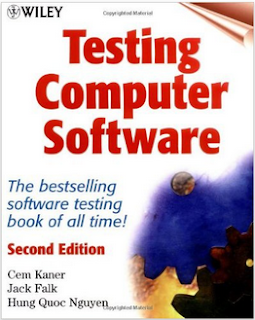My response to the following article
Point-1: QUALITY is at the root of our profession, in all things, in all ways
If we are to define traditional testing as point-and-click behind a desk, or using a mobile device, then the old ways were in serious need of evolution. The fundamentals for testing reside in the extraordinary lengths by which we go to to find defects. But, the entirety of quality assurance is just that ... assure the quality of the product. That includes the processes, plans, and methods that are employed, and the people who execute these plans.
Successful automation program relies on disciplined practices. A tester can be good at coding, but has added value when the fundamentals of QA are at the heart of the test cases.
Testers need to be good programmers as well moving forward ... they should be able to learn and evolve latest automation frameworks and work with scripting technologies to stay relevant.
I concur with this sentiment as it reflects my current situation and the glaring deficiency in my skill set. I acquired many skills in management but that pales in comparison with the need to know coding and at least one testing framework.
Point-2: Automation is a means to an end, not an end unto itself. This new trend is forgetting that.
Automation is not a panacea. It will not find low-hanging-fruit. It cannot suggest new test methods. It is a matter of perception as to the worth of a QA tester, but what automation WILL do is reduce the time taken to execute menial tasks freeing up time to concentrate on more important matters.
I remember testing an app looking for a memory leak. A simple loop with a count marker iterated through the process of taking a photo repeatedly until the app crashed. A second execution of this script a few seconds less before crashing.
The point: by hand, finding this memory leak would have been tedious and undoubtedly taken hours. Employing automation in conjunction with continual manual testing, I was able to report my findings with supporting evidence.
Point-3: Sloppy is as sloppy does! Automation will not credit development hours to the timeline if the developer remains undisciplined and careless in their work.
This was my battle as a QA Engineer. In my research, I came across many many frameworks that were too limiting, too expensive, or not completely what we needed.
Appium so far has proven to be the leading tool (one that has gotten a lot better to use since its first few versions last year, I might add). As I write this, I have made the commitment to fill the knowledge gap and learn this tool along with learning JAVA. What started out as a WANT is now a MUST HAVE. I recommend this to everyone not already onboard with automation or programming.
Test engineers need to be product experts, quality advisers and analyzers of risk.
Conclusion:The ultimate end of QA is far beyond bug-finding, way more indispensable than opening and closing tickets, and too valuable to be relegated to writing test plans and test cases.
It is imperative to be versed in all things relevant to Quality Assurance, but the age of automation is upon us. Manual testing, month-long full regression test cycles, and iterative testing are all a thing of the past. Like the old Model-T giving rise to a sleek 2015 Ford Fusion, QA Analysts give rise to Software Engineers in Test and are becoming full fledged members of DevOps.
Like it or not, this is only the beginning!!

